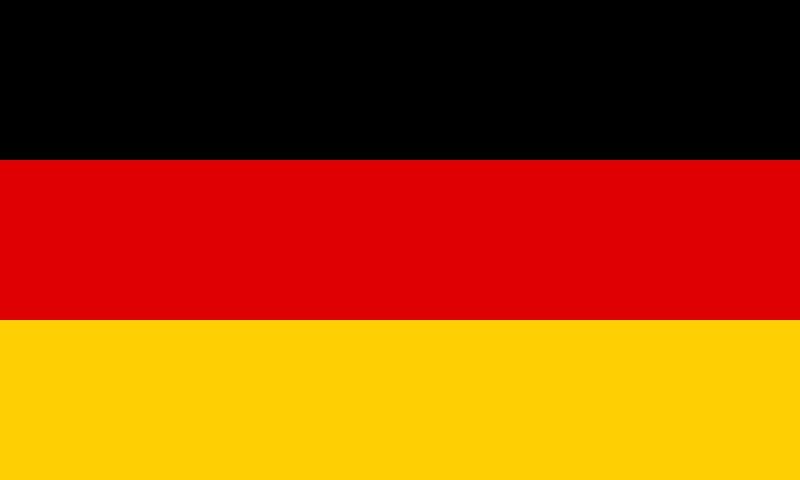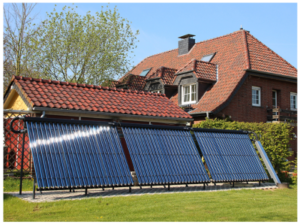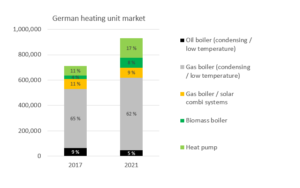Germany: New Heating Regulation Requires Replacement of Old Boilers
January 20, 2014
In May 2014, Germany will have a new Energy Savings Ordinance, the EnEV 2014. From 2015 on, the regulation will require the replacement of oil and gas boilers that are older than 30 years if they are not subject to one of the many exemptions. It might bring solar thermal an increased market volume, as new fossil boilers are often supplemented by solar collector systems. But in case of new buildings, the regulation favours heat pumps, making it likely for solar thermal to lose market shares.
The federal building ministry assumes that there might be altogether between 500,000 and 600,000 gas and oil boilers subject to the replacement regulation by January 2015, whereas the heating industry association BDH only estimates 400,000, according to a newspaper article in the Frankfurter Allgemeine Zeitung (FAZ). The mineral oil association Institute for Heating and Oil Technology, IWO, counts around 225,000 standard oil boilers which were installed in Germany before 1985, but the many exemptions in the regulation have left only 50,000 to 75,000 subject to it. For example, there is an exemption for all low-temperature boilers and for most boilers in houses inhabited by their owners.
Active marketing for oil heating combined with solar
According to the BDH, there were 650,500 new heating systems installed in Germany in 2012. This means that the regulation will, in any case, significantly increase the market for new heating systems in 2015 and beyond. Heating industry expert Dietmar Lange recommends that solar thermal companies address the topic in their marketing strategy. In the optimistic scenario that one solar system of 10 m2 was sold with 50,000 to 75,000 of the new heating systems, the installed collector area would increase by between 500,000 and 750,000 m² – or, in other words, by about half the size of Germany’s solar thermal market in 2013.
Especially in the federal state of Baden-Württemberg, the new regulation will prove to be of interest, as state law requires the installation of a certain collector area when retrofitting a heating system if the new boiler is fired by oil or gas. In contrast, biomass boilers comply with state law in Baden-Württemberg without the need for solar thermal collectors, making the two renewable energy technologies competitors.
According to the IWO, 47 % of all new oil heating systems installed in Germany in 2012 were accompanied by a solar thermal system – a sensible move, because oil is more expensive than gas and the savings by solar thermal are higher. Whereas boiler manufacturers are pushing for a combination of solar and oil boilers, the solar thermal industry favours a combo of the more environmentally friendly pellets and solar thermal. Lange recommends that the solar industry addresses the combination of solar thermal and fossil boilers more actively in their marketing efforts.
Cleaner electricity favours heat pumps
The new EnEV offers less favourable conditions for solar thermal in new buildings. The increasing share of renewable electricity prompted the authors of the new regulation to stipulate a reduction of the so-called primary energy factor for heat pumps from 2.6 to 1.8. Because all heating systems are compared based on primary energy consumption, heat pumps become more favourable. According to first estimates by the BDH, a new house equipped with a heat pump and fulfilling energy efficiency standard KfW 70 receives the highest available energy label A+. The same house with a gas-condensing boiler and a solar thermal system for hot water supply would only get an A, whereas a pellet boiler would reduce the rating to a C. According to the heating regulation, heat pumps count as a renewable source of energy.
More information:
Heating regulation changes: http://www.enev-online.com/enev_2014_volltext/index.htm
Institute for Heating and Oil Technology, IWO: http://www.iwo.de
Heating association BDH: http://www.bdh-koeln.de
Heat Pump Association: waermepumpe.de
BSW Solar: http://www.solarwirtschaft.de


